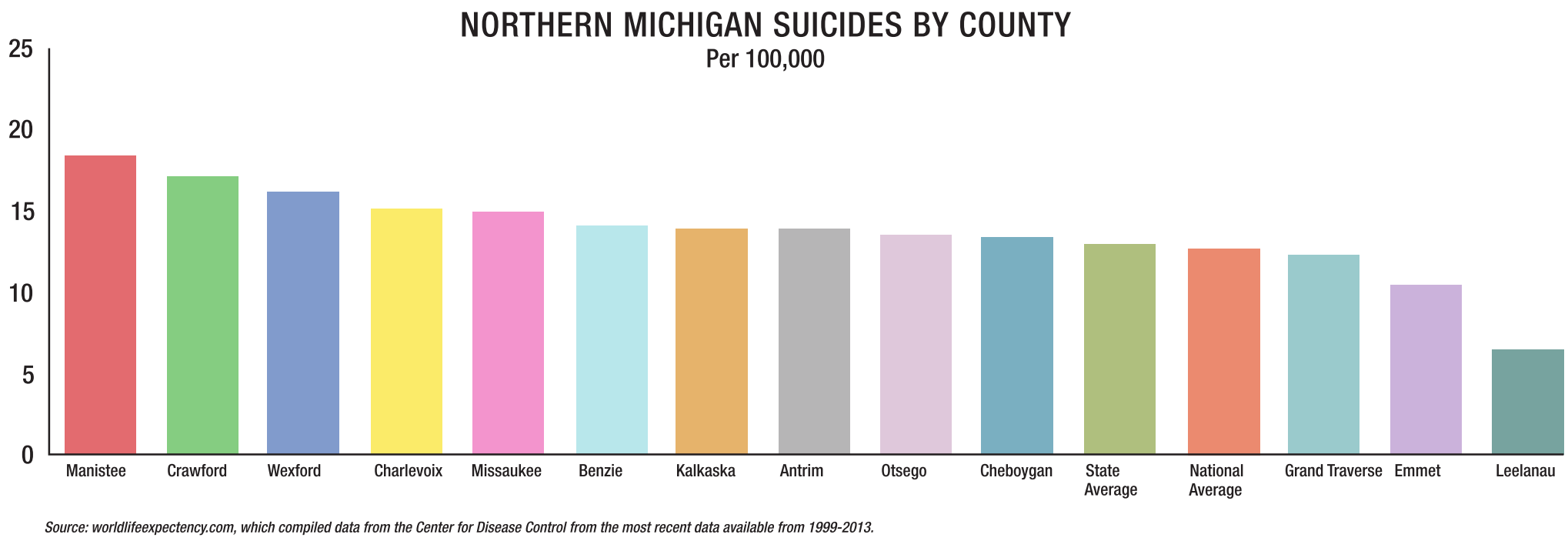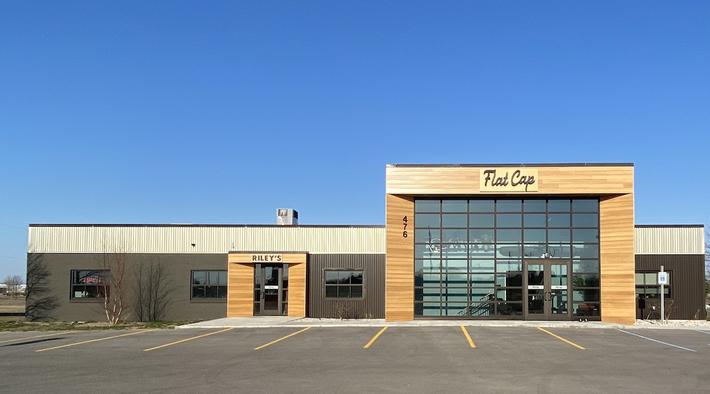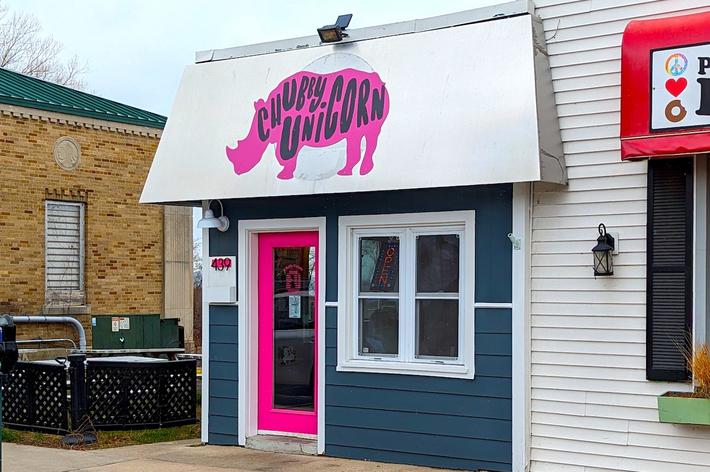Thinking About Killing Yourself? Read This.
Aug. 27, 2015

People who work in suicide counseling say the biggest factor contributing to someone’s life or death is whether that person is able to overcome the stigma associated with mental illness and ask for help.
If you live in northern Michigan and you’re thinking about killing yourself, call one of these numbers: (231) 922-4800 or (800) 442-7315. They connect to the Third Level Crisis Intervention Center suicide hotline.
A SURGE IN CALLS
When Robin Williams committed suicide on Aug. 11, 2014, there was a surge in calls to Third Level in Traverse City, said Gina Aranki, public relations director for Child and Family Services of Northwestern Michigan, the organization that encompasses Third Level.
"Robin Williams caused a big blip in calls," she said.
In recent weeks, people in the Traverse City area have reeled in shock and dumbfoundment over the murder-suicide of the Mendenhall family, a disturbing tragedy that occurred exactly one year after Williams took his life. It appears that a mother and father decided to take their own lives and those of their 3- and 6-year-old children.
Ryan DeMarsh, Third Level’s crisis unit supervisor, didn’t want to say how many calls the hotline received as a result of the murder-suicide, but he said that, typically, Third Level’s staff expects to get more calls after a traumatic, public suicide.
"It’s a community topic and so it affects community members regardless of if they were directly involved with that family or just other people reading about it," DeMarsh said. "That’s a horrific story to hear about and so the impact of just hearing that story can be traumatic for some."
In the wake of such an event, Third Level hopes to communicate that help is available and that people shouldn’t feel embarrassed or ashamed if they need it. That stigma – the feeling that depression or suicidal thoughts are something to be ashamed of – too often prevents people from seeking help.
"ARE YOU THINKING ABOUT KILLING YOURSELF?"
A power ingredient in suicide prevention is knowledge among average people of how to spot someone who may be suicidal, how to approach them and how to get them help.
"It used to be, for me, a very tough topic and, the more familiar I am with it and the crisis unit staff are with the topic, it’s second nature. We hear someone say, "˜I lost my house, I lost my kids, I lost my job’ and we say, "˜Wow, a lot of people that are going through that are thinking about killing themselves. Are you?’" DeMarsh said. "And that’s a very, very minimal statement to say, "˜Whoa. Are you thinking about killing yourself?’ A lot of people don't do that, but that’s what we do here."
In addition to the suicide hotline, Third Level offers Safe Talk, a three-hour training session for anyone hoping to better recognize suicidal behavior.
"It gets people aware of what to look for in terms of people being at risk for suicide," DeMarsh said. "The main message of that training is, once you identify that someone is suicidal, that you somehow assist them in getting them into more concrete help."
Anyone is eligible for the training, but it typically attracts people who are likely to encounter suicidal people, like EMTs, firefighters, police, nurses, teachers, social workers, foster care workers or even cabdrivers.
"There was a cabdriver at mental health first aid last year at CMH. I’m not sure why he was there, but he definitely wanted the training on it," DeMarsh said. "I would say BATA bus driers would be wonderful people to do that, too."
MAKE ASKING FOR HELP NORMAL
As awful as the Mendenhall event is, therapist Daniel Herd believes that, if the community reaction is a combination of outrage and compassion, something positive can come from it.
"People have to say, "˜We’re not going to let this happen without people being there to support them; we failed as a community to give proper care to these people who needed care,’" said Herd, a psychotherapist who recently started his own practice in Traverse City. "That kind of community response is more likely to get people to talk to a counselor or call a hotline."
If people are at risk, a shift in people’s attitudes toward them – from indifference and avoidance to concern and compassion – could help a lot, he said.
"There are lots of people in Traverse City who are living with suicidal ideas right now," Herd said.
Aranki agreed. "Maybe part of the question is how does a community remove some of the stigma that’s associated with feeling like you need mental health help, so that people feel comfortable enough to get the help that they need before they act?" she said.
The same goes for anyone who knows someone struggling with extreme depression; that person should not be dismissed.
Roughly 10 percent of Americans suffer from some kind of depression at one point in their lives. Herd said it’s important to listen and show specific compassion and concern in an authentic way.
"If you say, "˜Well, I dealt with depression and I got over it,’ the person with depression might hear, "˜If you were a good person, you would get over it,’" he said.
NO PLACE TO GO
A large mental health care challenge facing the region is the lack of space at psychiatric facilities for the people with the most serious problems.
Susan Britten spent five years as a licensed counselor, some of them on the front lines of suicide.
Britten, who has since changed careers, was an emergency services worker for Community Mental Health for a time, one of the people responsible for assessing whether someone taken by police to the emergency room at Munson Medical Center should be involuntarily committed to a psychiatric unit.
Interim Traverse City Police Chief Jeff O’Brien said officers are sometimes called by Third Level to ensure someone who poses a threat to themselves is safe. Officers take those people into protective custody and take them to the hospital.
Britten said her job brought her face-toface with despair. Sometimes people really needed help and didn’t want it; others didn’t want or need help, but wanted a warm, comfortable place to spend the night. Some people needed immediate protection from themselves.
Britten recalls spending hours trying to locate beds for people who needed help because Center One, Munson’s psychiatric facility, is often full, along with psychiatric wards at hospitals throughout the region.
"That’s a big problem," she said. "It’s not big enough for the amount of people that need care."
MORE TECH, MORE CALLS
Calls to Third Level have increased dramatically over the last several years. In 2011, Third Level received 26,000 calls to its 24-hour hotline, an average of 71 calls per day. De- Marsh said he calculates the center is on track to receive 33,000 calls this year, an average of 90 calls per day. That’s a 27 percent increase in four years.
That doesn’t necessarily mean more people are suffering, however.
DeMarsh said the state recently experimented with a 211 line, a hotline for people in need of a broad array of services to help with utility payments, health care or rent. Within the last year, county governments across northern Michigan opted not to fund 211 and now, DeMarsh says, calls to 211 go to a center in Muskegon and people in northern Michigan are told to call Third Level.
Third Level has also updated and diversified the ways it interacts with its clients. For the last four years, people have been able to talk to Third Level counselors via text message, a fortunate development for those who want to call, but don’t want a spouse or members of their household to know they are calling.
"I think that with more access to be able to reach out and ask for help, we’re able to reach more members of the community," DeMarsh said. "Every once in a while, we receive a message on the Facebook page that we respond to because it has suicidal content."
Yet, tech also poses new threats to mental health: Facebook makes people’s lives feel smaller compared to their friends; online, anonymous posts offer new opportunities to bully and harass; and the Internet provides incredible resources for people researching how to end their lives. "There’s an upside to it, because access has never been easier, but on the downside, it can be challenging for, I think, anybody to have perspective on your own life compared to other people’s," Aranki said.
BORN OF THE 1970s
Third Level has an unlikely origin. Michael Onthank, a retired Traverse City firefighter, was among a group of idealistic young people who helped start the nonprofit group in 1971, originally called North Country Salt. They wanted a clubhouse that would be the center of an alternative community, a place where young people could go if they’d smoked too much pot or had a bad LSD trip and needed some friendly company.
"It was more than just a crisis center that we wanted to start," Onthank said.
The group started a hotline for people to reach out for any kind of help and, gradually over the years, it became a suicide hotline.
Volunteers who answered the phones in those early days were not trained counselors or social workers, but along with other like-minded groups around the state, the group developed a training manual for how to take phone calls from people in crisis. That’s where the name Third Level came from; it refers to levels of ability to listen to people, the "third" being one where the listener is attune to the emotions of the speaker.
In those first years when the office was on 14th Street, Third Level looked, to some, like more of a threat than a public service.
"The neighborhood people didn’t like us that much. We had some meetings with them and calmed their feelings down. Actually, we made some friends over the years," Onthank said. "We basically had opposition from the law enforcement community and the psychiatric community."
Gradually, Third Level won over the critics and the alternative organization became mainstream.
"We were all a bunch of volunteers. We were not social workers; we did have, at one point, one of the psychologists at the state hospital who would come over occasionally if we needed backup," Onthank said. "We had community meetings to let people know we weren’t going to have junkies laying on the street. "¦ It started out as an alternative kind of thing and now it’s kind of gotten sucked up into the normal, traditional world."
The 24-hour Third Level hotline numbers are 231-922-4800 or 800-442-7315. They respond to text messages at 231-480-0292, Monday through Friday, between 4pm and 8pm, excluding holidays.
SUICIDE PREVENTION WEEK
Sept. 5–11 is Suicide Prevention Week. Third Level is looking for call center volunteers and is offering volunteer training beginning Sept. 10. Applicants must complete an interview by Sept. 3. For more information, call Mickie Jannazzo at (231) 922-4802.

Trending

Springtime Jazz with NMC
Award-winning vibraphonist Jim Cooper has been playing the vibraphone for over 45 years and has performed with jazz artist... Read More >>
Dark Skies and Bright Stars
You may know Emmet County is home to Headlands International Dark Sky Park, where uninterrupted Lake Michigan shoreline is... Read More >>
Community Impact Market
No need to drive through the orange barrels this weekend: Many of your favorite businesses from Traverse City’s majo... Read More >>


